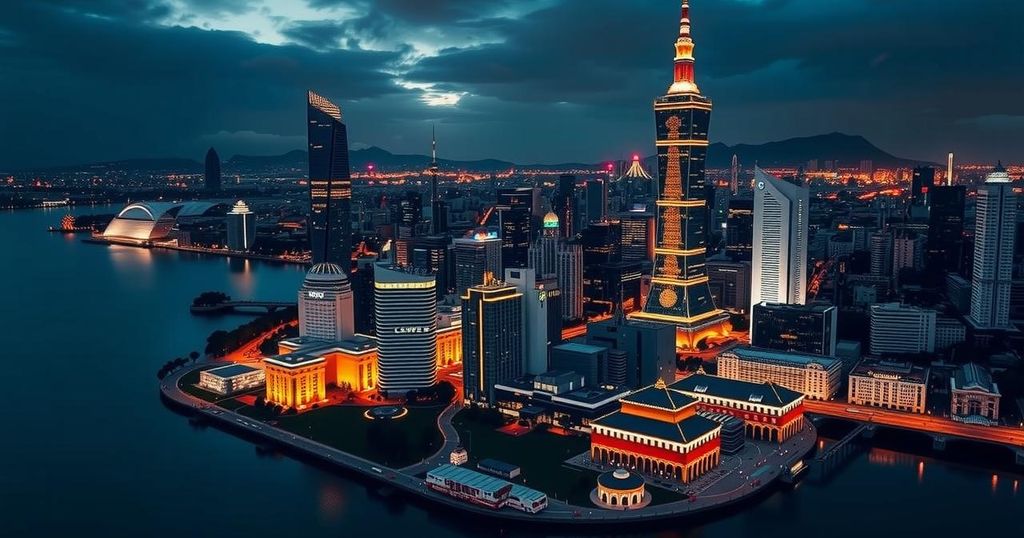South Africa Bows to Chinese Pressure by Moving Taiwan Office

South Africa has requested Taiwan to relocate its liaison office from Pretoria to Johannesburg, citing diplomatic norms. This move is perceived as yielding to Chinese pressure amid changes in South Africa’s political landscape, where the ANC is keen to reassure its ties with China. Taiwanese officials have indicated they may respond with reciprocal measures if the order is enforced.
South Africa has made the decision to further diminish its diplomatic relations with Taiwan by ordering the relocation of the Taipei Liaison Office from Pretoria to Johannesburg. The Department of International Relations and Cooperation stated that this move would rebrand the office as a trade office, aligning with diplomatic norms regarding the location of foreign embassies in capital cities. This decision has been perceived as a response to pressure from China, with Taiwanese officials expressing hope that South Africa may reconsider its directive. The Taiwanese Ministry of Foreign Affairs has indicated that South Africa may face reciprocal actions should it enforce this decision. The recent political landscape in South Africa has impacted this decision significantly. Following pivotal elections that led to the African National Congress (ANC) losing its absolute majority for the first time, the party has aimed to reassure China of its commitment to maintaining strong ties. The ANC’s engagement in a coalition government has necessitated careful navigation of its foreign policy, particularly regarding relations with China and Taiwan. China praised South Africa’s decision to move the office, reinforcing its stance against Taiwanese independence, while the Democratic Alliance (DA), a major political party within the coalition, expressed concerns regarding the lack of justification for this unilateral change in relations with Taiwan. South Africa’s actions reflect broader geopolitical pressures from China, which has been known to exert significant influence over African nations to adhere to its One-China policy. South Africa is not isolated in this regard; past instances, such as Nigeria’s similar move about six years ago, indicate a pattern of Chinese influence on the continent.
The context of this article revolves around South Africa’s diplomatic relations with Taiwan amidst increasing pressure from China, which does not recognize Taiwan as a sovereign state. The ANC’s recent political changes, particularly diminishing its majority in Parliament, have triggered a recalibration of foreign policies as it seeks to maintain its support from Beijing. The rebranding of Taiwan’s liaison office symbolizes a significant shift in the status of Taiwan in the eyes of South Africa, aligning with China’s One-China policy, which asserts that there is only one sovereign state under the name China, of which Taiwan is a part. As China’s economic and political influence in Africa has grown, many nations have found themselves facing pressures regarding their relations with Taiwan.
In conclusion, South Africa’s request for Taiwan to relocate its office underscores the influence of Chinese geopolitical strategy on African nations. The ANC’s efforts to solidify relations with China amid significant political changes demonstrate the complex interplay of domestic politics and foreign policy. With Taiwan potentially facing reciprocal measures from South Africa, the situation encapsulates the broader challenge that Taiwan encounters in its quest for international recognition, particularly in light of China’s assertive diplomatic practices. As Africa navigates its relations with global powers, instances like these reveal the intricate balance required in addressing both internal and external pressures.
Original Source: www.voanews.com








